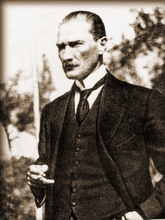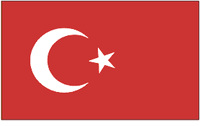- kim? : who?
- ne? : what?
- nerede? : where?
- ne zaman? : when? (literally "what time?")
- nasıl? : how?
- kaç tane? : how many?
- ne kadar? : how much? (literally "what extent?)
Let's break that down.
"How?", of course, is "Nasıl?"
The verb "to be" are handled in Turkish as endings: -im, -sin, -siniz, and -ler. Some examples follow:
| Singular | Plural |
| ben İngilizim I am English | biz İngiliziz we are English |
| sen İngilizsin You are English | siz İngilizsiniz you are English |
| o İngiliz he/she is English | onlar İngiliz(ler) they are English |
-ler is in brackets because it's usually left out.
Getting back to "Nasılsınız?", it evidently translates literally to "How are?" Apparently, "you" is understood, unless, of course, I'm missing something.
In any event, interesting.


2 comments:
Actually "nasılsınız" would probably translate literally as "How you?" Remember there's no explicit "are." The personal endings are just that – for persons.
Doh! Thanks again for correcting me. Your comment makes sense. "How are?" didn't sound right when I typed it.
Clearly, I misread my textbook on this topic. It was talking about endings like -siniz in the context of the verb "to be". I blended them together, losing sight of what you point out — i.e., personal endings are for persons.
Thanks again!
Post a Comment